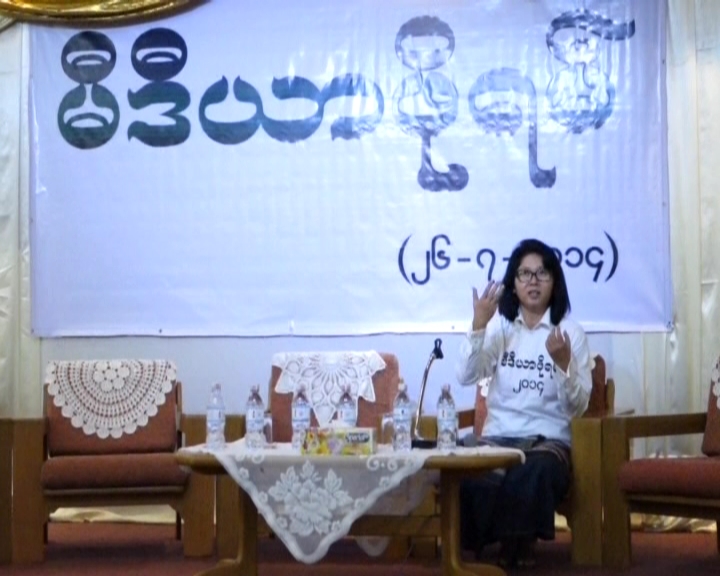A dearth of women in positions of power within Burma’s media is preventing women from influencing content, and entrenching gender stereotypes, according to a new report by a Swedish think-tank.
Women make up a significant proportion of media practitioners, with over 50 percent of newsroom staff being female. But management positions are overwhelmingly male, says the report by Fojo Media Institute at Linnaeus University, which was based on original research and aimed to cast light on the media industry in Burma from a gender viewpoint.
One female editor, Aye Aye Zin from Dawei Watch Media, told DVB: “There are well-known proverbs such as ‘A hen’s crow won’t bring up the sun’. The traditional Burmese ideologies always have been male-centric. Usually, in families or organisations, it is the men who take charge.
“Nowadays, more women are allowed to work and make their own decisions – to a small extent – but they had to fight hard even for that. My male acquaintances, when they speak to me, pretend to treat me as an equal but deep down in their mind, they don’t want to consider or take seriously what women say,” she said.
[related]
Former political prisoner and executive editor of Echo and the Myanmar Independent News Journals Ma Thida says that women are fighting against a male dominated environment: “Women in this country have remained passive for too long. Dictatorships and wars are male creations. The residual impacts are felt by every sphere, including journalism.”
“They will have to gradually find their own space and exert influence, but to do that, first they must be enabled,” she says in the report.
The research found that representations of women in the media tend to reinforce stereotypes as submissive and as homemakers, and do not capture the diversity of the reality and potential of women’s lives in Burma – even if women are in charge of content generation.
Ambitious women are often forced out of the industry after marriage or childbirth, researcher Pyo Let Han told DVB: “There are 52 percent of women [in the industry] but most of them are young. It’s not that they don’t want to continue, but due to a lack of support from their families for their career choice, and also a lack of assistance from the publications they work for, when they return from maternal leave, they are forced to abandon their career.”
The media has an important role in progressing ideas of gender in Burma, and challenging ideas of women as weak, and incapable of undertaking serious work and making decisions – therefore, media institutions need to be a model of equality, according to the report.



